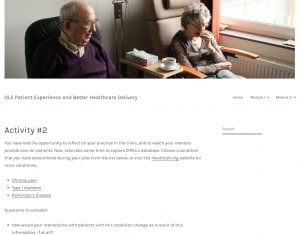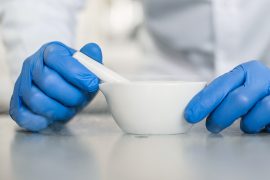The world is changing rapidly; the next generation will need to be equipped to face urgent problems and challenges unlike any time before. Higher education has an obligation to prepare graduates for the real-world, including the ability to deal with complex issues in the work environment. Interdisciplinary education has been identified as an effective method for developing graduate qualities, such as critical thinking, problem solving, communication, collaboration and creativity.
To provide a truly interdisciplinary educational experience the University of Sydney has developed Industry and Community Project Units (ICPUs), which provide senior students from all Faculties the opportunity to work together on real-world problems for industry partners.
What are ICPUs?
ICPUs are semester-long or intensive units of study, where students are given a brief of a real-world problem from an industry partner and must work in interdisciplinary teams to formulate a problem statement, brainstorm, research and identify potential solutions.
Students from all faculties across the University are involved, including the Arts and Social Sciences, Engineering and Information Technologies, Medicine and Health, Business, Science and Health Sciences.
The University has recently appointed 11 academics from a range of disciplinary backgrounds, to facilitate these innovative units. The team, led by Professor Lorraine Smith, is focused on providing student-centred learning, and developing a strong research agenda focused on interdisciplinary education and evaluating the ICPUs from student, staff and industry perspectives. A range of industry, community and government organisations have partnered with the University for the ICPUs, including Westpac, Accenture, AGL, NSW Farmers Association, the Public Service Commission, Thales, and NSW Health.
What does a typical ICPU look like?
No two ICPUs are the same; there are new project briefs each semester, and an interdisciplinary teaching team designing a range of teaching and learning activities in response to student needs and industry briefs. We already have several students who are selecting to take on a 2nd or 3rd ICPU as part of their degree program.

Generally speaking, in the first few weeks of an ICPU students come together to learn about the different ways of thinking, techniques for complex problem solving, and tools for team collaboration. After meeting the industry partner, small groups work on developing a project plan, which helps them articulate the problem statement, overall project approach you will take, team roles and timeline required for the completion. Throughout the semester, interdisciplinary student teams work on their projects, culminating in a project report and presentation. Dependent on the brief and the plan, the student-centred approach means that students are free to choose an alternative format for the group report, such as a performance, website, app, detailed business plan, or a prototype. These final assessments are presented to a range of stakeholders, including academics and industry partners.
Impact of the ICPUs
ICPUs have positively impacted students, staff and industry partners.
Students have commented on how much they appreciated having the freedom for more self-directed learning and the opportunities for cultural exchange with students from diverse backgrounds. Recently, the unit ‘The Future of Milk’ just completed in intensive mode over summer. Nearly 50 students worked in groups of 4-5, including a large cohort of exchange students from the University of Padova, Italy. The projects students arrived at were incredibly diverse, from creating models used to assist a farm making investment decisions, developing recommendations to address power imbalances between farmers, processors and supermarkets, to designing vending machines as alternative ways to get fresh milk and cheese to consumers. Experts from partner organizations the CSIRO and the Department of Primary Industries were incredibly impressed by the level of depth and creativity students were able to display within the 3-4 week period and interested in finding ways some ideas could be explored further between the them, the students, and university.
Several recommendations have actually been adopted by industry partners. For example, the Western Sydney Local Health District has been involved in the ICPUs, particularly with challenges facing the Westmead redevelopment. Last semester, one project focused on the impact of emerging technologies on healthcare delivery, and another focused on solutions to ‘wayfinding’ in the Westmead precinct. The deliverables presented by the students were strong examples of what could be achieved through interdisciplinary collaboration and entrepreneurship, and several recommendations were adopted by the Local Health District. Feedback on the ICPUs from both students and the industry partners has been overwhelmingly positive.
Where can people find more information?
- Students and staff interested in learning more about the ICPUs, in particular the industry partners involved and briefs for semester two, can find more information on the website: https://sydney.edu.au/students/industry-and-community-projects.html
- Check out a wrap-up of the 2018 ICPU experience on the Intranet





